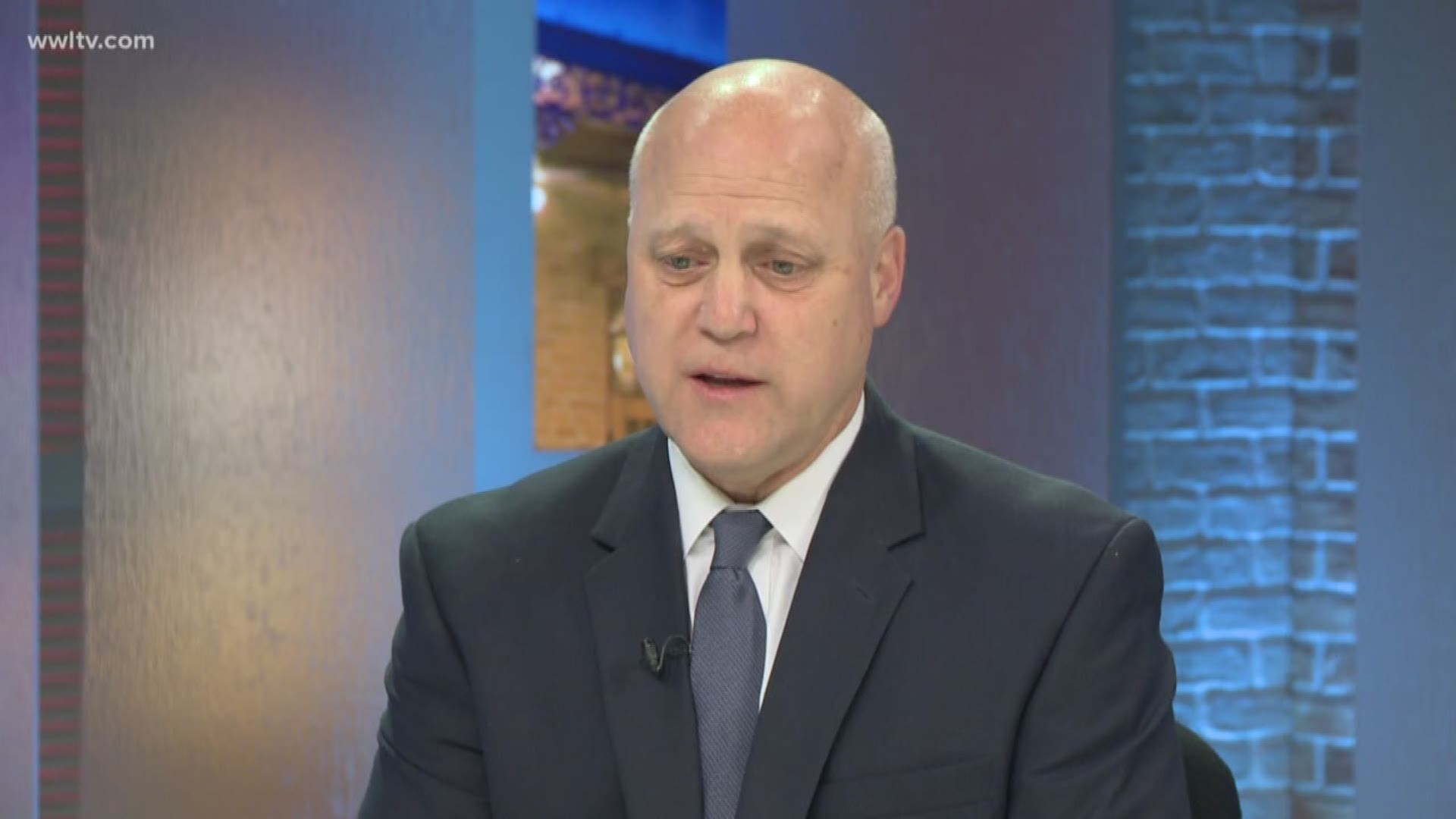NEW ORLEANS -- The first glimpse into Mayor Mitch Landrieu’s new book that recounts his decision to remove four Confederate monuments in the city is being offered as he prepares to begin a cross-country tour to promote it.
And if the eight-page excerpt put on the website of Penguin Random House, the book’s publisher, is any indication, the book will be as controversial as his decision to take down the landmarks.
“In the Shadow of Statues: A White Southerner Confronts History” begins with Landrieu recounting the trouble he had finding a crane to take down the three statues to Confederate leaders and an obelisk that memorialized a post-war uprising against the Reconstruction-era police force in the city.
In the prologue, Landrieu writes that he had trouble despite the city being in the midst of “a building boom like no other” as there were “cranes across the skyline.”
Certain to be up for debate is a claim Landrieu makes as he recalls his frustration in not being able to get a crane for the jobs.
“The people of the city of New Orleans, through their elected government, had made the decision to take down four Confederate monuments, and it wasn’t sitting well with some of the powerful business interests in the state.”
While the City Council did vote 6-1 to remove the monuments, a point of contention among those who opposed the action was that citizens did not get to vote on the matter.
Landrieu writes that he made “aggressive, personal appeals” to try to find a crane for the job after the handful of bidders who hoped to get the job were threatened.
“I did whatever I could. I personally drove around the city and took pictures of the countless cranes and crane companies working on dozens of active construction projects across New Orleans. My staff called every construction company and every project foreman,” Landrieu writes. “We were blacklisted. Opponents sent a strong message that any company that dared step forward to help the city would pay a price economically and even personally.”
He said that pointed actions, including a car being torched, were “tactics as old as burning crosses or social exclusion, just dressed up a bit.”
“This is the very definition of institutional racism,” Landrieu writes. “You may have the law on your side, but if someone else controls the money, the machines or the hardware you need to make your new law work, you are screwed.”
Landrieu writes that the four removals were a “crisis” but defends his decision.
“The statues were not honoring history, or heroes,” Landrieu writes. “They were created as political weapons, part of an effort to hide the truth, which is that the Confederacy was on the wrong side of humanity.”
One of the arguments among those in favor of keeping the monuments was that their removal would wipe away some of their family histories since their ancestors fought in the Civil War.
“I do not mean dishonor to these people,” Landrieu writes. “My concern is with the political meaning of the monuments in New Orleans, who put them there and why: the perversion of history.”
Aside from the monument removal, Landrieu’s book is his treatise on race relations in America, a wound he says has yet to heal.
“Race in America’s most traumatic issue, one that we have not nearly worked through,” he writes.
Of New Orleans, he writes, “we … have a history of racial injustice that we must never stop confronting in order to build a stronger and more equitable city for all who call it home.”
The preview ends with Landrieu recounting his early days at Jesuit High School as a 13-year-old eighth-grader who one day learned from the principal that a threat had been made against his life.
Landrieu's father, former Mayor Moon Landrieu, was three years into his first term and making good on his campaign promises to give contracts and City Hall jobs to African-Americans, while urging the city’s hotels and restaurants to hire them for higher-level positions.
The woman who threatened him, Landrieu writes, was a gadfly at City Hall who protested when Moon Landrieu and the rest of the City Council took down the Confederate battle flag from the council chamber.
“She kept on protesting after that,” Landrieu writes.
The book will be released March 20.
Four dates for the book tour have been announced, Gambit recently reported: March 26 in Atlanta, March 28 in Philadelphia and March 29 in Washington, D.C.
The official book launch will be March 21 in Brooklyn, New York, and include a discussion between Landrieu and writer Jelani Cobb, who profiled the mayor recently in The New Yorker.
No local signing dates have been announced.

